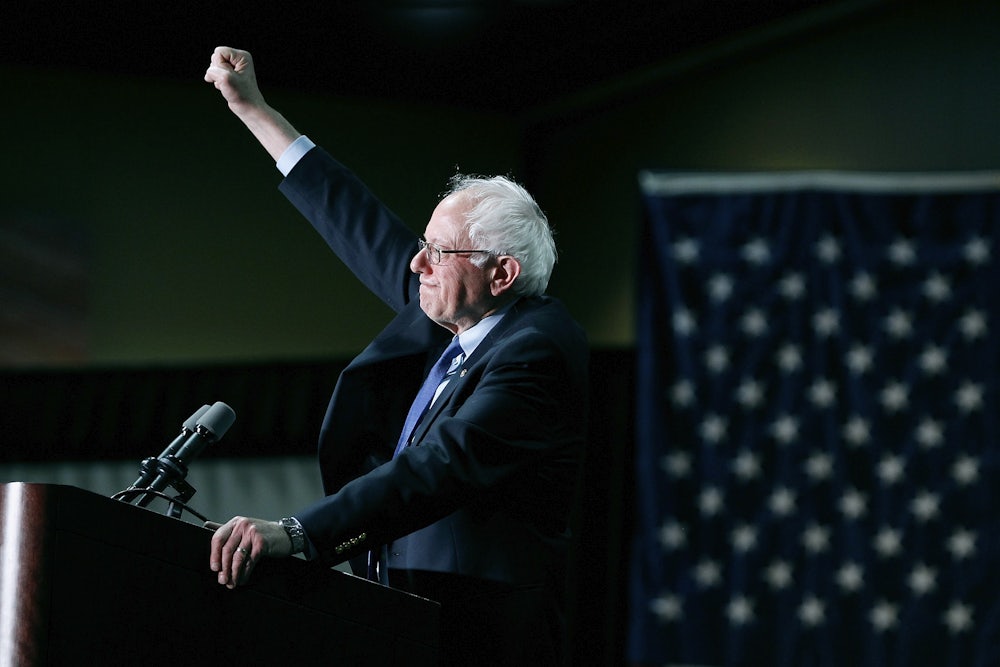Sanders may or may not win Indiana’s primary—he and Hillary Clinton are in a virtual tie as I write—but the election didn’t really factor into the speech he gave shortly after the state’s polls closed.
In many ways, Sanders’s speech was familiar. He brought up his campaign’s incredible Cinderella story, in which he overcame a 60-point deficit to win over 20 states. And he discussed the most important issues of his campaign: fixing income inequality, raising the minimum wage, making higher education free, and rebuilding America’s crumbling infrastructure.
But one thing was missing: the sense that he was actually competing for the Democratic nomination. Yes, Sanders alluded to his successes, but he barely mentioned Hillary Clinton, and refrained from attacking her, for the first part of his speech. He eventually got there, laying out the distinctions between the two candidates in fundraising and in other areas.
But this was mostly a speech about the future, and not a future in which he was president. Instead, he spoke about the future of the movement he has come to lead—a movement of younger progressives who are set on pushing the Democratic Party away from corporate and financial interests and towards fixing problems like income inequality. One takeaway from this is that Sanders clearly knows that he can’t win the Democratic primary, but another is that he still thinks he can ultimately win over the Democratic Party. His speech tonight was both a preview of his long-term goal of remaking the party and his short-term one of influencing its platform at the Democratic National Convention.
